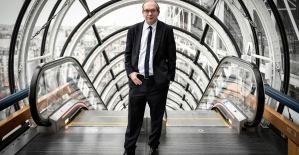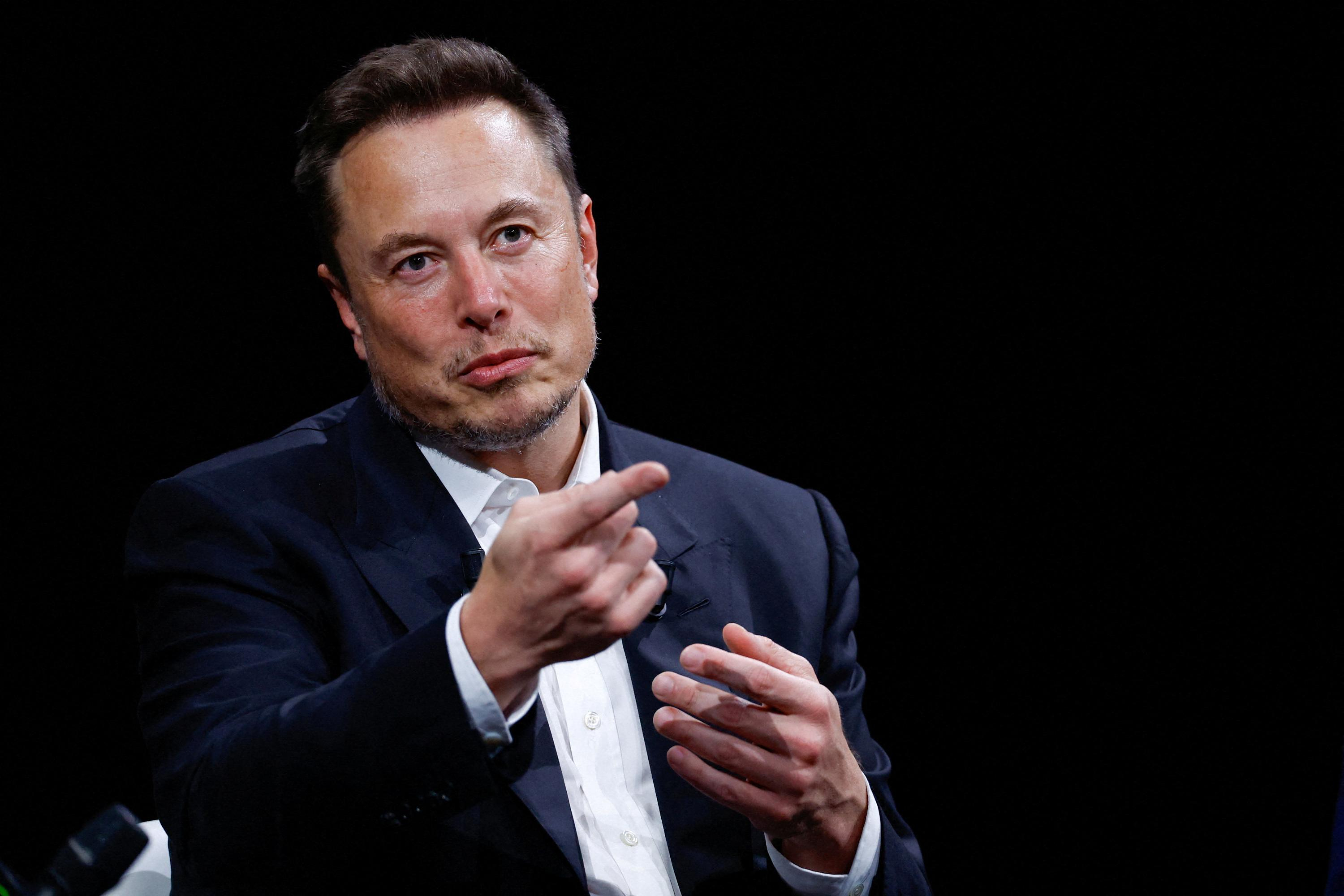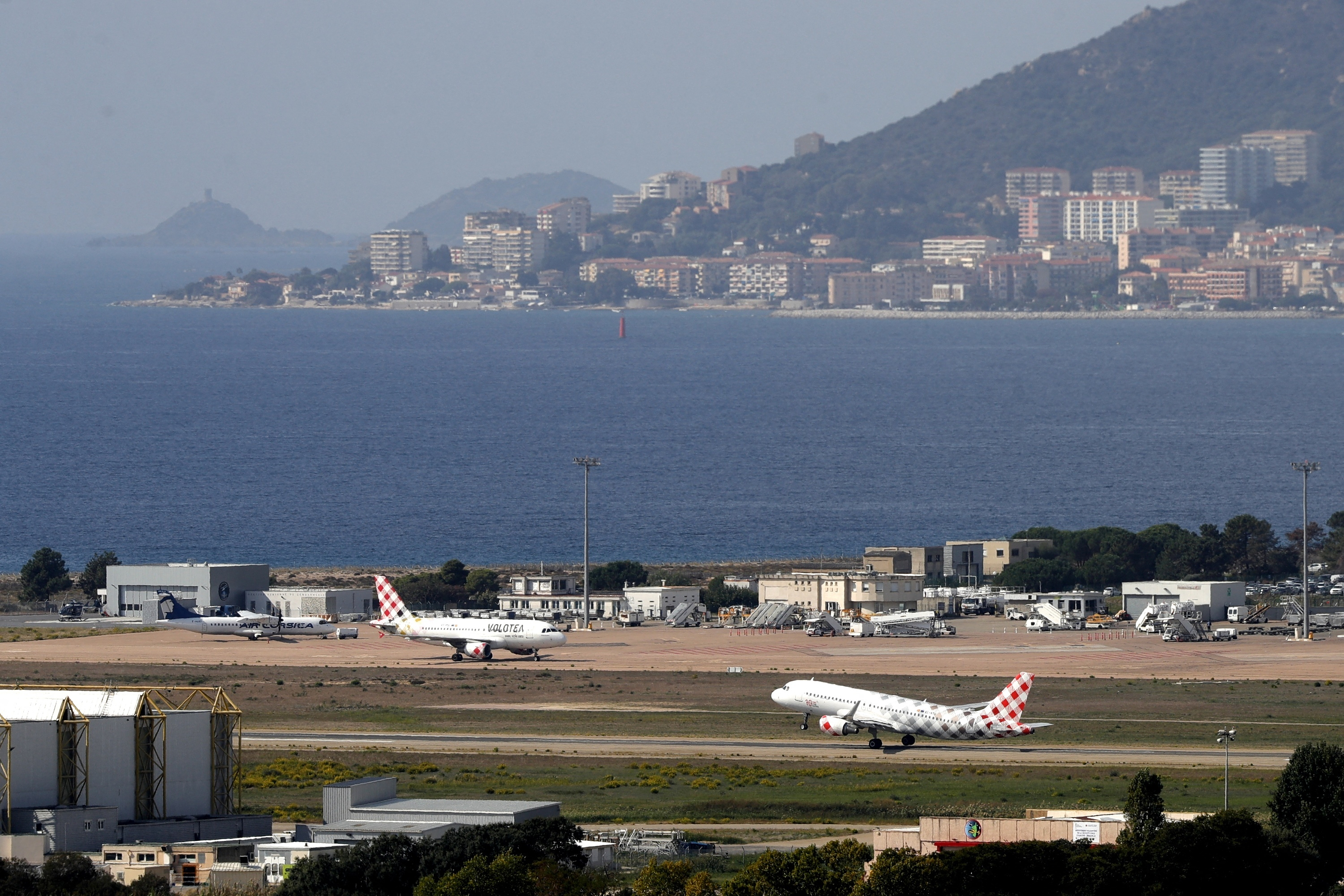In a welcoming speech for the future conference of the Hamburger Universitäts-Gesellschaft, which took place on Tuesday in the Hamburg Chamber of Commerce, climate researcher Klaus Hasselmann, who was awarded the Nobel Prize in Physics last year, presented his analysis of the recent climate debate. WELT publishes his speech, the was read out at the event in the absence of the author.
It is now 60 years since my Co-Nobel Laureate Syukuro Manabe showed that an increase in CO₂ in the atmosphere leads to an increase in the Earth's temperature. It has been 50 years since the Club of Rome published its famous book, The Limits to Growth. And right now, a follow-up work has emerged in which the earlier model has been significantly expanded and two scenarios are presented: TLTL, too little too late, and GL, giant leap. The latter would be our only chance of getting man-made climate change under control and keeping the consequences tolerable.
It's been 40 years since I was able to scientifically separate natural climate variability from man-made influences, leading to the finding that man-made CO₂ emissions are 95 percent responsible for measured global temperature increases. Since the first IPCC report (1990) at the latest, politicians have known what to expect. Ms. Merkel visited my institute in 1998 and as a physicist she was able to give us a razor-sharp presentation on the climate problem.
Again and again we, especially my colleagues Mojib Latif and Hartmuth Grassl, have tirelessly pointed out that the longer we wait, the more expensive it will be to solve the problem. It should also be borne in mind that ending CO₂ emissions will not solve the problem. No, the gas will remain in the atmosphere for over 100 years before disappearing.
How much time has passed since then! And what has really been done? The federal government's climate experts have just repeatedly stated that Germany is far from achieving the climate goals it has set itself. Why is this:
1. Humans have an innate ability to react to danger only when it directly affects them.
2. Churchill formulated: Of all the bad forms of government, democracy is still the best. Yes, politicians want to be re-elected every four or five years. People don't like to make unpopular decisions that only bear fruit in the distant future.
3. Yes, and then, of course, there is the economy, which does not make changes if they suffer economic disadvantages as a result. Nevertheless, there were also laudable exceptions such as Michael Otto, who sold clothing from sustainable production early on. His endowed professorship for sustainable environmental development for social and humanities research into economic and climate issues was very far-sighted. She has contributed to the University of Hamburg's clusters of excellence in climate research.
And now the dangers of climate change are drawing near. The Potsdam Institute for Climate Impact Research just published a study, according to which hurricane damage increases when global temperatures rise due to greenhouse gases from fossil fuels. Computer simulations of regional economic sectors and supply chains in the USA now show that the resulting economic losses can no longer be compensated for nationally at some point if warming continues to increase.
According to the authors of the study, if too many production sites are hit by a hurricane and no longer produce, other countries step in to supply goods. The effects of climate change hurricanes will thus put the US at an economic disadvantage – the warmer, the stronger. I don't think I need to mention the costs of the direct damage caused by more and more extreme events.
Nevertheless, climate change has now penetrated the consciousness of the majority of people. Heat waves, heavy rain, storms are an integral part of our lives. I also think that the economy, independently of politics, is looking for ways out, such as Maersk trying out new fuels for their ships, or Airbus having interesting plans to produce hydrogen from sunlight during flight. To name just two examples.
I also found it interesting in the new Club of Rome report that the goals can only be achieved if mankind manages to find cooperative forms of society. This includes countries taking advantage of their natural resources themselves. Likewise, a general debt relief must give the poorer countries the conditions to even have a chance of sustainable development.
I am always asked if I believe that humanity will master the climate problem. I'm an optimist by nature and I think we'll make it. Nevertheless, the earth will no longer look like it did when I was young. The 1.5 degree target is no longer achievable. Nonetheless, let's get on with it!
The author, now 91 years old, was Director at the Max Planck Institute for Meteorology in Hamburg from 1975 to 1999.

 His body naturally produces alcohol, he is acquitted after a drunk driving conviction
His body naturally produces alcohol, he is acquitted after a drunk driving conviction Who is David Pecker, the first key witness in Donald Trump's trial?
Who is David Pecker, the first key witness in Donald Trump's trial? What does the law on the expulsion of migrants to Rwanda adopted by the British Parliament contain?
What does the law on the expulsion of migrants to Rwanda adopted by the British Parliament contain? The shadow of Chinese espionage hangs over Westminster
The shadow of Chinese espionage hangs over Westminster What High Blood Pressure Does to Your Body (And Why It Should Be Treated)
What High Blood Pressure Does to Your Body (And Why It Should Be Treated) Vaccination in France has progressed in 2023, rejoices Public Health France
Vaccination in France has progressed in 2023, rejoices Public Health France Food additives suspected of promoting cardiovascular diseases
Food additives suspected of promoting cardiovascular diseases “Even morphine doesn’t work”: Léane, 17, victim of the adverse effects of an antibiotic
“Even morphine doesn’t work”: Léane, 17, victim of the adverse effects of an antibiotic Collection of booklet A stalls in March
Collection of booklet A stalls in March Kering expects a 40 to 45% drop in operating profit in the first half
Kering expects a 40 to 45% drop in operating profit in the first half Smartphones, televisions, household appliances… MEPs adopt a “right to repair”
Smartphones, televisions, household appliances… MEPs adopt a “right to repair” Fintechs increasingly focused on business services
Fintechs increasingly focused on business services The standoff between the organizers of Vieilles Charrues and the elected officials of Carhaix threatens the festival
The standoff between the organizers of Vieilles Charrues and the elected officials of Carhaix threatens the festival Strasbourg inaugurates a year of celebrations and debates as World Book Capital
Strasbourg inaugurates a year of celebrations and debates as World Book Capital Kendji Girac is “out of the woods” after his gunshot wound to the chest
Kendji Girac is “out of the woods” after his gunshot wound to the chest The Court of Auditors scrutinizes the management and projects of the Center Pompidou
The Court of Auditors scrutinizes the management and projects of the Center Pompidou Skoda Kodiaq 2024: a 'beast' plug-in hybrid SUV
Skoda Kodiaq 2024: a 'beast' plug-in hybrid SUV Tesla launches a new Model Y with 600 km of autonomy at a "more accessible price"
Tesla launches a new Model Y with 600 km of autonomy at a "more accessible price" The 10 best-selling cars in March 2024 in Spain: sales fall due to Easter
The 10 best-selling cars in March 2024 in Spain: sales fall due to Easter A private jet company buys more than 100 flying cars
A private jet company buys more than 100 flying cars This is how housing prices have changed in Spain in the last decade
This is how housing prices have changed in Spain in the last decade The home mortgage firm drops 10% in January and interest soars to 3.46%
The home mortgage firm drops 10% in January and interest soars to 3.46% The jewel of the Rocío de Nagüeles urbanization: a dream villa in Marbella
The jewel of the Rocío de Nagüeles urbanization: a dream villa in Marbella Rental prices grow by 7.3% in February: where does it go up and where does it go down?
Rental prices grow by 7.3% in February: where does it go up and where does it go down? Europeans: “All those who claim that we don’t need Europe are liars”, criticizes Bayrou
Europeans: “All those who claim that we don’t need Europe are liars”, criticizes Bayrou With the promise of a “real burst of authority”, Gabriel Attal provokes the ire of the opposition
With the promise of a “real burst of authority”, Gabriel Attal provokes the ire of the opposition Europeans: the schedule of debates to follow between now and June 9
Europeans: the schedule of debates to follow between now and June 9 Europeans: “In France, there is a left and there is a right,” assures Bellamy
Europeans: “In France, there is a left and there is a right,” assures Bellamy These French cities that will boycott the World Cup in Qatar
These French cities that will boycott the World Cup in Qatar Football: VAFC supporters are ironic after their descent into National
Football: VAFC supporters are ironic after their descent into National Tennis: Carlos Alcaraz should play in Madrid
Tennis: Carlos Alcaraz should play in Madrid Football: victim of discomfort in the middle of a match in mid-April, Evan Ndicka will resume training with AS Roma
Football: victim of discomfort in the middle of a match in mid-April, Evan Ndicka will resume training with AS Roma Ligue 1: PSG almost champion, OM, shock for the C1… 5 reasons to follow an exciting evening
Ligue 1: PSG almost champion, OM, shock for the C1… 5 reasons to follow an exciting evening


















